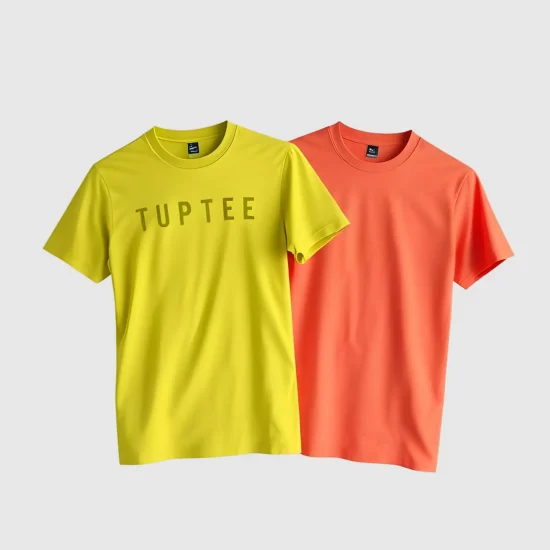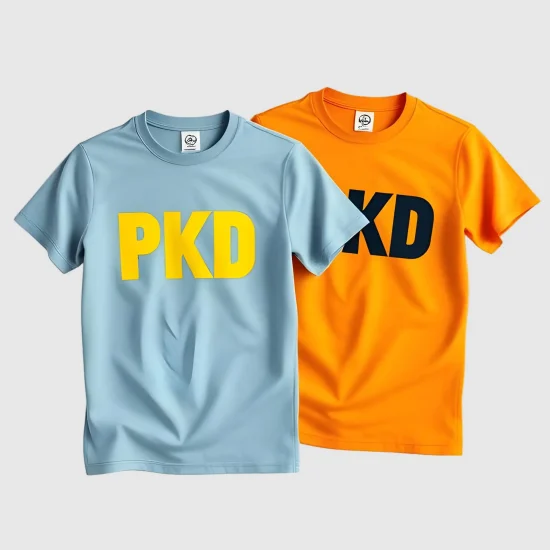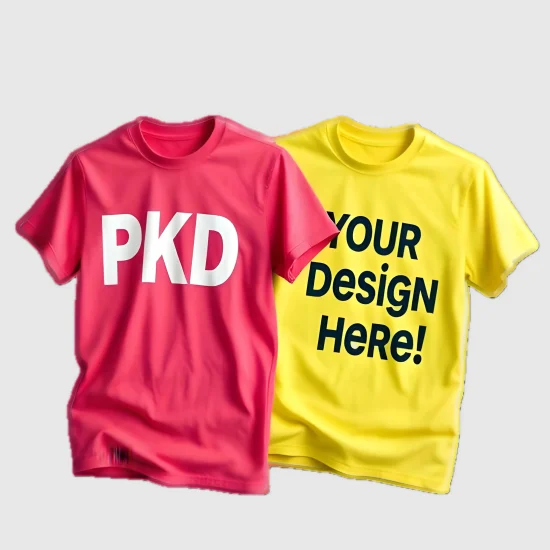Premium custom T-shirts for Arequipa (Peru) | Bulk & wholesale printing
Choosing the right offshore OEM garment manufacturer for bulk custom T-shirts is about precision, trust, and timing. If you’re scaling in Arequipa (Peru), you need a partner who can translate tech packs into production-ready results—on quality, on budget, and on schedule. This guide covers everything you need before ordering: customization options, MOQs, lead times, sampling, quality control, certifications (OEKO-TEX, BSCI, WRAP), ethical standards, payment terms, shipping, and practical tips for bulk sourcing from a private label T-shirt supplier and eco-friendly T-shirt manufacturer. Throughout, we naturally integrate high-intent keywords like bulk custom T-shirts wholesale printing and wholesale T-shirt printing to help you rank and convert.
Customization options for premium T-shirts
Fabrics and blends
- Core cotton:
100% ringspun combed cotton for softness and durability; carded cotton for a more rugged hand-feel. Typical GSM ranges: 120–140 GSM (lightweight), 150–180 GSM (midweight daily wear), 190–220 GSM (premium), 240–300 GSM (heavyweight streetwear). - Sustainable choices:
Organic cotton (GOTS-compliant supply options), Better Cotton (BCI) cotton, recycled cotton, recycled polyester (GRS supply options), and modal/viscose blends for drape—a strong fit for an eco-friendly T-shirt manufacturer brief. - Performance blends:
Cotton-poly blends (60/40, 52/48) for shrink and wrinkle resistance; tri-blends (cotton/poly/rayon) for a heathered, vintage look; moisture-wicking polyester for sportswear and sublimation. - Specialty knits:
Piqué, waffle, slub, jersey with enzyme/silicone washes for premium hand-feel; yarn-dyed stripes and marls for elevated collections.
Fits and construction
- Fit profiles:
Classic, regular, slim, oversized, boxy, and longline silhouettes; women’s tailored cuts; youth and kids grading available. - Necklines and trims:
Crewneck, V-neck, Henley; 1×1 rib collars; twin-needle hems; shoulder-to-shoulder taping; reinforced seams for heavy GSM garments. - Pattern and grading:
Custom grading rules per region; size sets aligned with Arequipa (Peru) market standards to reduce returns and improve sell-through.
Printing and embellishments
- Screen printing:
Plastisol for color pop and durability; water-based and discharge for soft-hand and eco-forward briefs; puff, suede, high-density, and glow inks for depth and texture—ideal for bulk custom T-shirts wholesale printing at scale. - Digital printing:
DTG for multicolor art and smaller MOQs; DTF for sharp prints across fabrics; dye-sublimation for 100% polyester. - Embroidery and extras:
Flat and 3D puff embroidery, applique, chenille patches, woven patches, and reflective transfers for premium branding.
Labeling and brand identity
- Neck and care labels:
Heat-transfer tags for no-itch comfort; woven/printed labels; tear-away options; multi-language care labels for international compliance. - Brand touchpoints:
Hem flags, sleeve badges, custom hangtags, UPC/EAN barcodes, and RFID if required by major retailers—key for a private label T-shirt supplier.
Packaging and presentation
- Retail-ready packaging:
Individual polybags (recycled options), size stickers, fold boards, custom tissue, branded mailers, and master cartons with clear carton marks. - Sustainability options:
Recycled poly, biodegradable mailers, FSC-certified cartons, and minimal-ink prints to reduce environmental impact.
MOQs and lead times
- Typical MOQs (subject to total order quantity requirements, for sustainable fabric MOQ verry):
- Screen print tees: 700–1000 units per color per design
- DTG/DTF: 500–1000 units per design (great for market testing).
- Custom-dyed fabric: 1000–1,500 units per color (varies by mill).
- Special trims/packaging: 1,500+ units due to supplier MOQs.
- Lead times:
- Proto sample: 7–10 days after tech pack.
- Fit/PP sample: 10–14 days after proto feedback.
- Bulk production: 30–45 days after PPS approval and deposit.
- Peak seasons: Add 1–2 weeks buffer.
- Dyeing and special finishes:
Garment dye, enzyme wash, or heavy silicone wash can add 5–10 days. Yarn-dyed stripes often require earlier booking.
Pro tip for Arequipa (Peru) buyers: align your launch calendar by working backward from delivery, locking fabric booking and printing approvals early to secure dye house and print line capacity.
Sampling and quality control
Sampling roadmap
- Tech pack alignment:
Clear BOM, measurements, tolerances, color standards (Pantone TCX), print position guides, and wash expectations to minimize revisions. - Sample types:
- Proto (development sample): Confirms construction and silhouette.
- Fit sample: Validates grading and comfort.
- PP/PPS (pre-production sample): Exact materials, trims, and print—this becomes the golden reference.
- Size set: For full-size grading validation, recommended before large launches.
- Strike-off/lab dip: Print and color approvals on actual fabric base.
In-line and final inspections
- AQL and checkpoints:
In-line inspections at cutting, post-print/embroidery, and post-finishing; final inspection against an AQL standard (e.g., AQL 2.5) for a balanced defect tolerance. - Measurement and performance tests:
Shrinkage and twist after wash, colorfastness to wash and rub, print adhesion, pilling resistance for blends, and needle control for safety in kidswear. - Third-party QC (optional):
Independent inspections available for retailer-grade assurance; golden sample and QC checklist shared prior to bulk. - Defect handling:
Clear rework and replacement policy for critical defects; photographic and measurement reports for transparency.
Certifications and ethical practices
- Facility certifications:
Production available through facilities that hold or support OEKO-TEX Standard 100 for chemical safety, BSCI or SEDEX/SMETA for social compliance, and WRAP for responsible manufacturing. On request, we can route orders through ISO 9001 (quality) and ISO 14001 (environmental) certified units. - Material certifications (on request):
GOTS for organic cotton and GRS for recycled materials can be maintained with chain-of-custody when specified in the PO and BOM. - Ethical sourcing:
No child or forced labor, safe working conditions, fair working hours and wages aligned with local laws, and grievance mechanisms. Social audits and corrective action plans are shared upon request. - Sustainability in practice:
Water-based inks, low-impact dye options, wastewater treatment partners, fabric yield optimization, offcut recycling, and recycled or FSC-certified packaging—key differentiators for an eco-friendly T-shirt manufacturer serving Arequipa (Peru) brands.
Note: Certification scope varies by product, factory, and material. Always request current certificates and scope numbers tied to your specific order.
Payment terms and global shipping
Payment and terms
- Standard terms:
T/T with 30% deposit to book materials and 70% balance before shipment or against copy of B/L. L/C at sight available for larger POs. - Samples and small runs:
Payment in full prior to dispatch; PayPal or card available for sampling fees. - Incoterms and currency:
EXW, FOB (port of loading), and CIF for turnkey deliveries to Arequipa (Peru). Quotes typically in USD or EUR; bank fees and currency conversion costs are buyer’s responsibility. - Cost clarity:
Detailed cost breakdowns: fabric, trims, CMT, print/embroidery, wash, packaging, QC, and freight—so you can calculate true landed cost.
Shipping and logistics
- Freight options:
Courier for samples (3–7 days), air freight for urgent replenishments (5–10 days), sea freight for bulk (20–40 days depending on route), and rail for select corridors to EU. - Documentation:
Commercial invoice, packing list, HS codes, country of origin, certificates of conformity (if required), and test reports for retailer compliance. - Cartonization and compliance:
Custom carton spec, polybag suffocation warnings, size labels, FBA/retailer label formats, and palletization guidelines to reduce DC handling times. - Tracking and insurance:
Tracking shared at dispatch; cargo insurance recommended for sea freight. Consolidation services available to combine multiple POs into one shipment.
Tips for sourcing bulk custom T-shirts
- Define your must-haves:
List non-negotiables (GSM, fabric blend, print type, silhouette) so the factory can quote accurately and avoid scope creep. - Use tight tech packs:
Include Pantone codes, print placements with measurements, stitch types, and tolerances; attach reference photos to reduce interpretation risk. - Pilot before scaling:
Start with DTG/DTF or modest screen-print MOQs to validate demand and fit before committing to custom-dyed bulk. - Approve a golden sample:
Make the PPS your single source of truth; reject anything that deviates and keep it on the production floor for QC alignment. - Plan calendars backward:
Work from your in-store date; lock booking windows for fabric, dye house, and print lines to avoid peak-season bottlenecks. - Negotiate smartly:
Consolidate colors/fabrics and standardize trims to hit supplier MOQs and lower cost per unit without sacrificing quality. - Budget for testing:
Set aside time and budget for shrinkage, colorfastness, and wash tests—especially for dark shades, heavy GSM, and specialty inks. - Think total landed cost:
Factor freight, duties, insurance, bank fees, and potential rework—cheapest FOB price rarely equals cheapest delivered cost. - Size ratios for your market:
Use sales data or comparable brand benchmarks; adjust ratios for Arequipa (Peru) demographics to reduce stockouts and dead stock. - Document changes:
Any midstream change should update the PO and tech pack; undocumented changes are the top cause of cost and timeline overruns.
10 reasons to choose our company
- OEM expertise:
Decades of offshore OEM garment manufacturing for global brands—fluent in tech packs, retail standards, and compliance. - Full customization:
From 120–300 GSM fabrics to specialty washes, premium prints, and branded packaging—built for private label T-shirt supplier needs. - Scale-friendly MOQs:
Flexible pathways: DTG for tests, screen print for volume, and mill-dyed programs for color consistency at scale. - Reliable lead times:
Calendar-driven planning, capacity booking, and milestone reporting to deliver consistently—no surprises at ship date. - Certification access:
Production through OEKO-TEX, BSCI/SEDEX, WRAP, and ISO-capable facilities; GOTS/GRS material sourcing on request. - Sustainability options:
Organic and recycled materials, water-based inks, recycled packaging—ideal for eco-friendly T-shirt manufacturer briefs. - Retail-grade QC:
AQL-based inspections, lab testing, and golden sample enforcement to protect your brand and minimize returns. - Transparent pricing:
Itemized quotes with clear BOM and process costs so you control margins and predict landed costs. - Global logistics:
EXW, FOB, or CIF shipping to Arequipa (Peru) with consolidation, tracking, and documentation support. - Dedicated support:
A single point of contact from sampling to delivery, proactive communication, and swift problem-solving when timelines are tight.
If you share your target GSM, fabric blend, print technique, and required delivery window in Arequipa (Peru), we’ll craft a precise quote and sampling plan tailored to your launch calendar—and get your bulk custom T-shirts wholesale printing moving with confidence.




